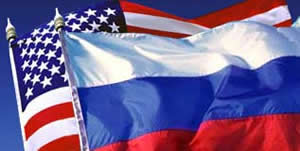US-Russia Summit Nuclear Weapons Information
 |
By Hans M. Kristensen
Can they do it? Expectations are high for the July Moscow Summit to produce an agreement to extent the START Treaty and commit to additional nuclear weapons reductions in the future. The following provides quick access to information about nuclear weapons numbers:
Overview of World Nuclear Forces
Global Nuclear Stockpiles, 1945-2006
US and Russian Total Nuclear Arsenals:
– Russia
– Briefing slides on history of US and Russian nuclear arsenals
US and Russian Non-Strategic Nuclear Weapons:
– US Nuclear weapons in Europe
– History of US nuclear weapons in South Korea
– Russian Tactical Nuclear Weapons
Other Nuclear Weapon States (Most Recent Overviews):
– France, China, United Kingdom, India, Pakistan, Israel, North Korea
The last remaining agreement limiting U.S. and Russian nuclear weapons has now expired. For the first time since 1972, there is no treaty-bound cap on strategic nuclear weapons.
The Pentagon’s new report provides additional context and useful perspectives on events in China that took place over the past year.
Successful NC3 modernization must do more than update hardware and software: it must integrate emerging technologies in ways that enhance resilience, ensure meaningful human control, and preserve strategic stability.
The FY2026 National Defense Authorization Act (NDAA) paints a picture of a Congress that is working to both protect and accelerate nuclear modernization programs while simultaneously lacking trust in the Pentagon and the Department of Energy to execute them.